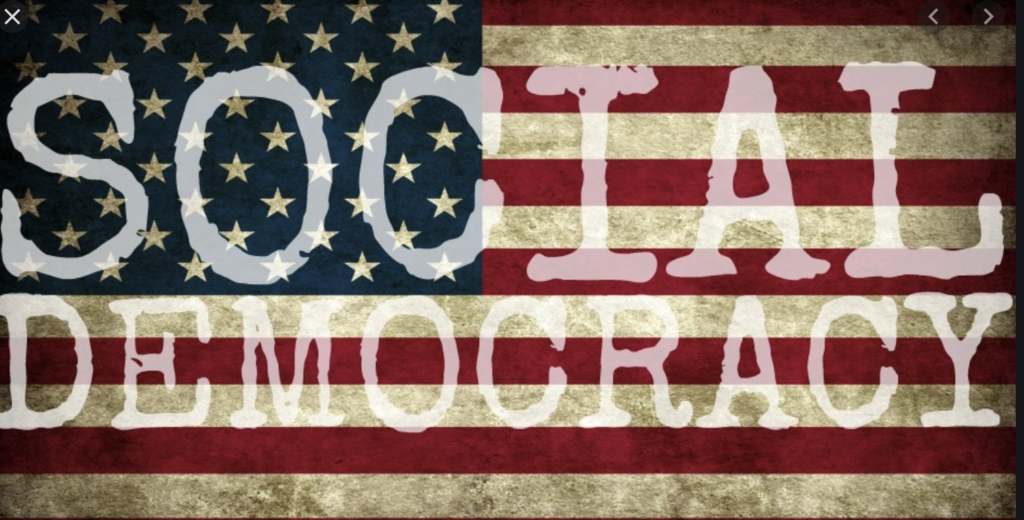Socialism?
In America?
Never happen. There was one time it might have happened, but a man named Franklin D. Roosevelt prevented it.
Sadly, none of the people who hated Socialism gave him credit for it. Heck, the actually tried to oust him from office with a coup midway through his first term.
The United States in 1932 was a pretty mean country. There was no Social Security, no unemployment insurance, no food stamps. There was no minimum wage and no workplace safety rules.
While many people professed to be Christian, the fact is that far more people worshipped at the altar of Capitalism, especially of the laissez-faire variety. One of the most famous capitalists, J.P. Morgan, was blunt about it.
“It’s not my job to pay a man what he’s worth.”
Morgan and his fellow captains of industry, saw the one-on-one negotiation between an employer and his employee was sacred, and the idea of collective bargaining and labor unions horrified them.
That’s why in 1900, a family of four was said to need an income of $2,000 a year to live a middle-class life. Sadly, only about a third of American families made $2,000 a year or more.
Until nearly the end of the 19th century, many people were able to take advantage of the fact that parts of our country were at least undersettled. A tailor who wasn’t making it in Minneapolis could head west and find a developing town that needed a tailor. Or a blacksmith. Or a dentist.
As long as we had that, we had a safety valve for capitalism’s pressure cooker.
But with millions of unskilled workers coming in from Eastern and Southern Europe, the system started failing. In New York City in particular, the slums of lower Manhattan were hellish.
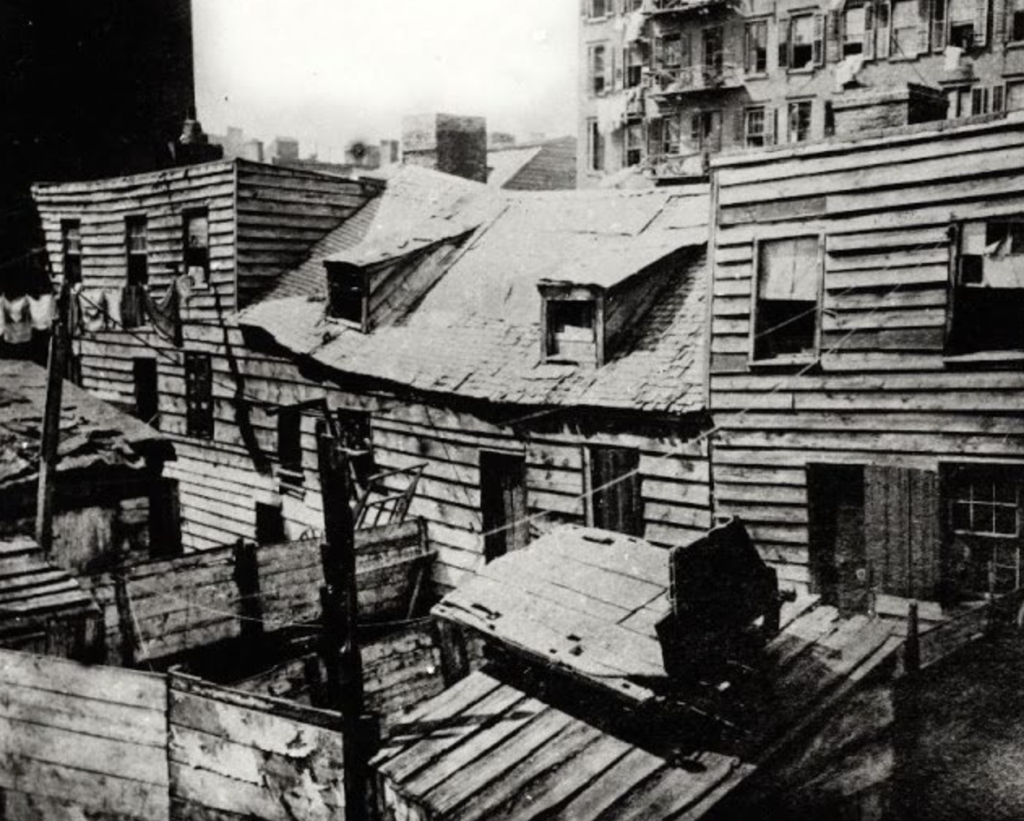
In 1903, population density in some parts of lower Manhattan was 665 people per acre, and things like privacy and sanitation just didn’t exist. Yes, there was plenty of propaganda in the stories Horatio Alger wrote, but any actually living that life knew Alger’s stuff had no relation to reality.
Some folks did make it out, but they were the exceptions. My step-grandfather Rappaport emigrated from Russia in the early 1920s. By the time I met him in 1957, he had his own business, a small neighborhood grocery store. He worked 80-90 hours a week, raised his family and died at age 68. Overwork had to be one of the factors.
There is no question people worked harder then than we do now. Six-Day work weeks were standard, and especially during the first part of the Great Depression, those lucky enough to find work were making as little as nine or ten cents an hour.
Those who couldn’t find work …
They learned that in some ways, at some times, the American Dream is only for the lucky or the strong. They learned that people who might have given them help believed that giving them anything would destroy their incentive to work.
That began to change with the election of FDR in 1932. All over the country, particularly in the midwest, people were pointing to Russia as the light at the top of the world. They were blaming unfettered capitalism for the Depression and looking for the government to run things.
Hard to believe?
Just look at the story of the Bonus Army, a group of World War I veterans who came to Washington to beg for early payment of a promised service bonus scheduled to be paid in 1945. Not only did President Hoover refuse even to meet with them, he got the Army to run them out of town.
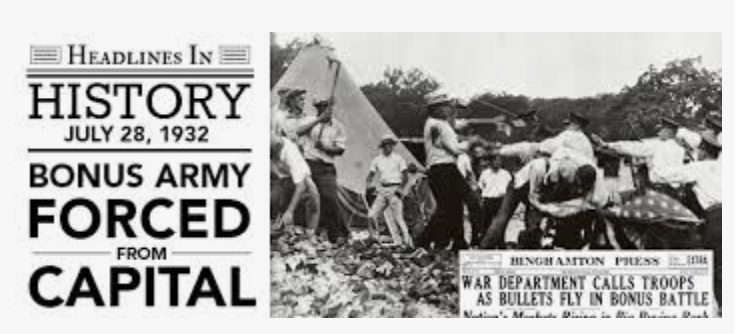
When Roosevelt heard how Hoover had handled the situation, he was appalled at the lack of humanity the president had shown.
The New Deal programs conservatives hated as socialism were nowhere near. No one got money for nothing. Yes, much of the work was make-work, but jobs in the Works Progress Administration enabled people to keep their pride, and jobs with the Civilian Conservation Corps did work in national parks and forests that still benefits us today.
Then there was Social Security, possibly the single best anti-poverty program ever. Until Congress passed Social Security in 1935, elderly people had nothing for retirement except whatever they had been able to save. Very few working-class jobs offered any kind of pension.
The elderly were the worst-off age group financially, and those who weren’t able so support themselves had only family members and private charities to help them. One of the finest films of the 1930s, “Make Way for Tomorrow,” told the story of an elderly couple who could no longer support themselves and lost their house. Their children grudgingly took them in, but none of them had room for both. The couple had been together nearly all their lives, but were forced to live apart when they needed each other most.
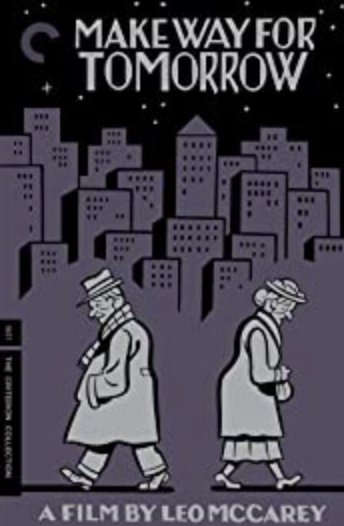
Social Security might just have saved the country. It wasn’t welfare since people contributed to it from their paychecks, and people were able to look down the road to retirement and not see an abyss awaiting them.
Medicare wasn’t charity, either, even though Ronald Reagan attacked it as a big step down the road to Soviet communism. That was the reason for the lie he told in his debate with Jimmy Carter that probably won him the election.
Carter said that Reagan had been opposed to Medicare. Reagan grinned, said “There you go again,” which was basically accusing Carter of lying about him.
Actually, we might have a very different country if Roosevelt had lived out his fourth term. In his state of the union speech on January 11th, 1944, he proposed a Second Bill of Rights from postwar America.
It was basically an economic bill of rights to provide security for hard-working Americans. He said the following rights should be for all Americans:
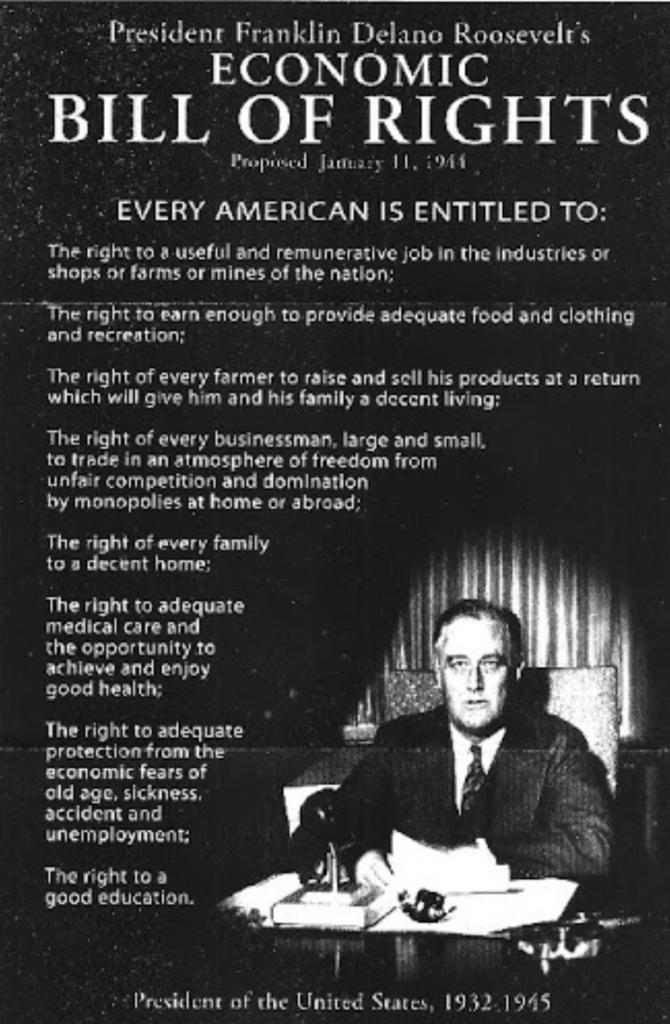
FDR might have managed it, but I’m not sure anyone else could have. Lyndon Johnson tried with his Great Society programs. Right wingers will tell you what a failure they were, but that’s far from the truth.
From 1965, when they started, to the end of 1980, the percentage of people living below the poverty line fell from 29 percent to 15 percent. Johnson shouldn’t get all the credit for that. Richard Nixon was very good on poverty issues as well.
But when Reagan took office in 1981, all the welfare programs started getting slashed. Of course, the poverty rate went up.
I think Reagan honestly believed that anyone willing to work hard could get a good job, and employers would always treat good workers fairly.
And I have always felt Reagan believed that rich people were rich because they were better people.
Bill Clinton’s “welfare reform” in the ’90s made everything worse, and little has been done to make things better in the 25 years since.
Republicans claim to hate the Affordable Care Act, aka Obamacare, but you don’t see insurance companies agreeing with them. The ACA gave them access to millions more customers, most of them young and healthy,
We will never have anything remotely resembling socialism in this country. The most basic thing about socialism is that the government owns the means of production, something that only happens in totalitarian states. European countries with social democracies would be the best model, but we don’t even need that.
The best thing we could probably do is return to most of the system that was in place in the 1950s, minus of course the sexism and racism.
You know the biggest thing they didn’t have then that we have far too much of now?
Billionaires.
Bring back the progressive income tax, with a top rate of say 70 percent, and you’ll see a lot of change.
It won’t be socialism.
It’ll be the land of the free and the home of the brave, back when we gave a damn about each other.

